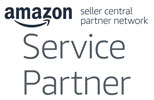Product Research Pitfalls: Navigating Challenges with Izabella Ritz’s Expertise
Izabella Ritz’s expertise and experience underscore several critical insights that align with the identified “big no-nos” in product research and development, emphasizing a holistic and strategic approach to product creation and market entry:
- **Market Validation Is Key:** Izabella emphasizes the importance of validating not just the product concept but also its market demand and competitive landscape. This includes understanding the nuances of customer needs, the strengths and weaknesses of current market offerings, and identifying clear opportunities for differentiation.
- **Quality and Safety First:** Drawing from her experience, Izabella highlights the significance of prioritizing product quality and safety from the outset. This involves choosing the right materials, adhering to industry standards, and conducting comprehensive product testing. This focus helps in building a strong brand reputation and customer trust over time.
- **Understand Your Margins and Costs:** Izabella advises a thorough financial analysis, considering all costs associated with bringing a product to market—including production, shipping, marketing, and potential tariffs. Understanding these costs is crucial for setting a competitive yet profitable price point.
- **Strategic Branding and Positioning:** According to Izabella, how a product is branded and positioned in the market is as important as the product itself. This includes a well-thought-out brand story, clear value proposition, and a marketing strategy that resonates with the target audience.
- **Adaptability and Flexibility:** Izabella’s experience teaches the importance of being adaptable and flexible in product development and launch strategies. Markets evolve, and consumer preferences change, so being able to pivot or adjust your product and strategy is a valuable skill.
- **Leverage Technology and Innovation:** Embracing technology and innovation in product development can provide a competitive edge. Izabella encourages the use of modern tools and techniques, from AI for market research to sustainable materials and practices, to enhance product offerings and operational efficiency.
- **Building Customer Relationships:** Beyond the product itself, Izabella understands the importance of building strong relationships with customers. Engaging with your audience, listening to their feedback, and continuously improving your product based on real user insights are key to long-term success.
By integrating these insights with the strategic approach to product research and development, entrepreneurs and businesses can avoid common pitfalls and navigate the complexities of bringing new products to market more effectively. Izabella Ritz’s expertise underscores the multifaceted nature of successful product development, from ideation through to launch and beyond, highlighting the importance of a comprehensive, customer-focused, and agile approach.
*Product Validation: Ensuring Market Fit and Success
In the bustling marketplace of today, where new products emerge at an unprecedented pace, the process of product validation has become more critical than ever. It’s a rigorous test of a product’s market viability, ensuring that it not only meets the creators’ vision but also fulfills a genuine need within its target audience. This article delves into the essence of product validation, outlining its importance, the steps involved, and key strategies to effectively execute it.
*The Importance of Product Validation
Product validation is the beacon that guides entrepreneurs through the murky waters of market entry. It serves multiple purposes: verifying that a product idea has a tangible demand, minimizing risks associated with product launches, and laying a foundation for meaningful improvements. This process ensures that resources—time, money, and effort—are invested in products that have a real chance of success.
*Steps for Effective Product Validation
**Market Research:**
Start with a deep dive into the market. Understand your audience, the competition, and the current trends. This initial step helps in forming a hypothesis about the product’s potential success.
**Prototype Development:**
Create a minimum viable product (MVP) or prototype. This doesn’t have to be perfect but should be good enough to demonstrate the product concept and its key functionalities.
**Feedback Loop:**
Present your MVP to a selected group of potential users. Collect feedback meticulously. Pay attention to what they like, what they don’t, and the problems they wish the product could solve.
**Analyze and Iterate:**
Analyze the feedback and identify patterns. Use this data to refine your product. This step may involve several iterations of testing and feedback to hone in on the product that best fits the market needs.
**Pre-Launch Activities:**
Utilize pre-launch marketing strategies to build anticipation. This could include email marketing, social media campaigns, or early access offers to further validate the market’s interest.
*Strategies for Successful Product Validation
**Utilize Digital Tools:**
Leverage online surveys, social media polls, and digital prototypes to gather feedback efficiently from a broader audience.
**Embrace Transparency:**
Be open about the stage of your product. Early adopters appreciate being part of the development process and are often more forgiving and insightful.
**Segment Your Audience:**
Not all feedback is created equal. Identify your ideal customer profile and weigh their feedback more heavily in your analysis.
**Fail Fast and Learn Quickly:**
Don’t fear failure in the early stages. Use it as a learning tool to pivot or make necessary adjustments to your product idea.
**Seek Expert Guidance:**
Engage with industry experts like Ritz Momentum and mentors who can provide valuable insights and help avoid common pitfalls.
*Conclusion
Product validation is not just a step in the development process; it’s a culture that should pervade every aspect of bringing a new product to market. By rigorously testing a product’s market fit, entrepreneurs can make informed decisions, adapt to their audience’s needs, and significantly increase their chances of success. Remember, a validated product is a product built on the solid ground of real-world needs and preferences, poised for success from the moment it launches.
We Build High-Profit Amazon Products
That Beat Your Competition.
Guaranteed.



